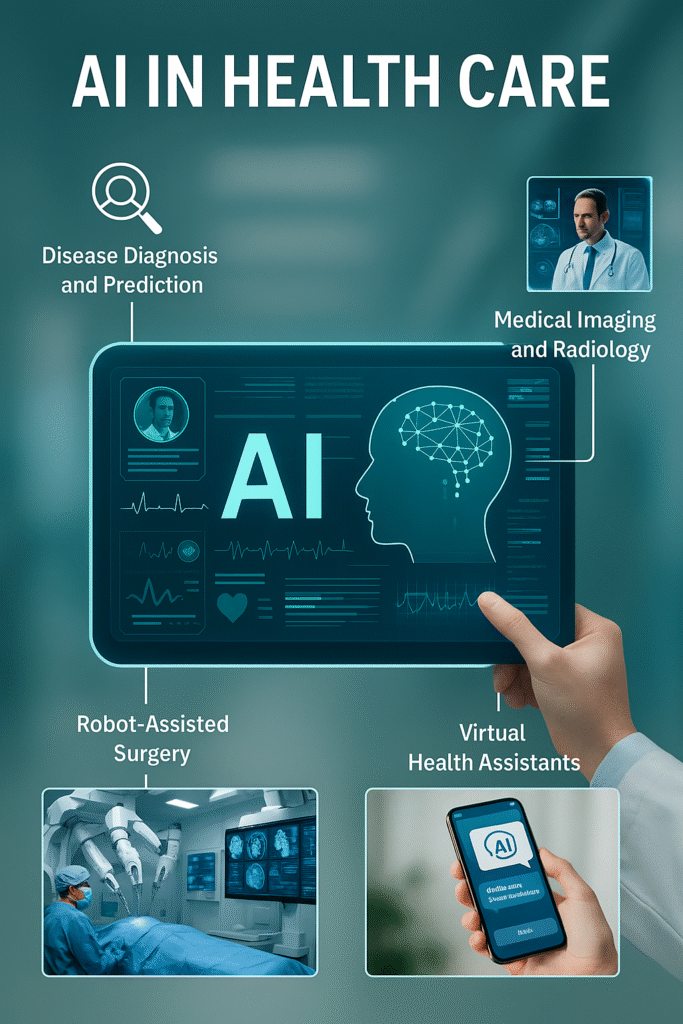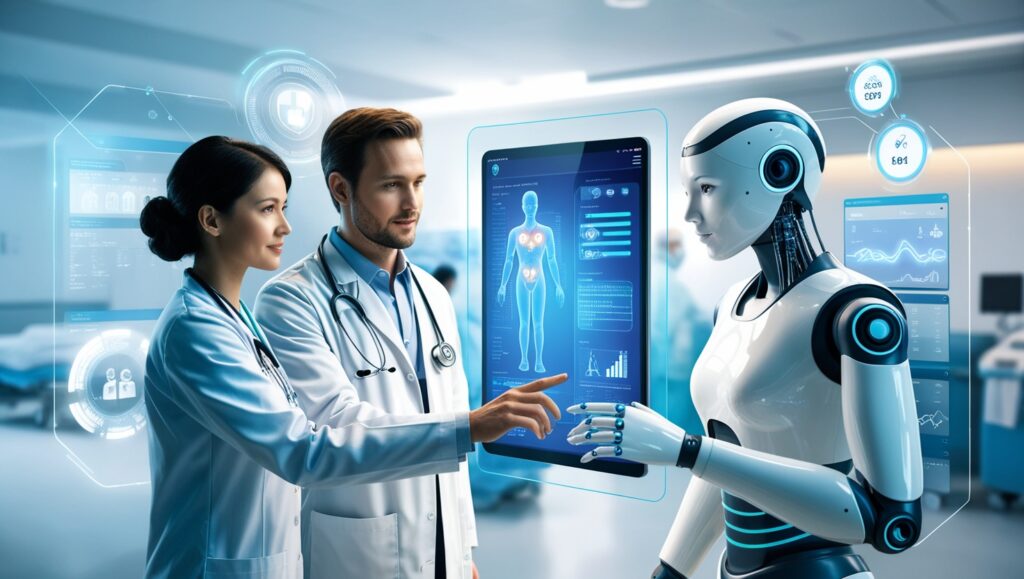Introduction
Artificial Intelligence (AI) is no longer just a concept from science fiction—it’s now a reality that’s reshaping healthcare as we know it. From predictive diagnostics to robot-assisted surgeries, AI is becoming a critical tool for healthcare professionals and institutions around the world.
In this blog, we’ll explore how AI is being integrated into healthcare systems, its benefits, real-world examples, and the future of this groundbreaking technology.
🔍 What is AI in Healthcare?

AI in healthcare refers to the use of machine learning algorithms, natural language processing (NLP), and robotic process automation (RPA) to mimic human cognition in the analysis, interpretation, and understanding of complex medical data.
📊 Top Applications of AI in Healthcare
1. Disease Diagnosis and Prediction
AI tools can analyze large datasets of medical records to detect patterns and predict diseases early, sometimes before symptoms appear.
✅ Example: Google’s DeepMind has developed AI that can diagnose over 50 eye diseases as accurately as a top do
2. Medical Imaging and Radiology
AI improves the speed and accuracy of X-rays, MRIs, and CT scans. It can detect anomalies that the human eye might miss.
🧠 Example: IBM Watson Health uses AI to interpret imaging data, assisting radiologists with faster report
3. Personalized Medicine
By analyzing a patient’s genetic makeup and lifestyle, AI helps doctors tailor treatments to individual needs.
Keywords: personalized AI medicine, AI in genomics, AI drug response prediction
4. Robot-Assisted Surgery
AI-powered robots can perform precise surgical operations with minimal incisions, leading to faster recovery times and less blood loss.
🤖 Example: Da Vinci Surgical System uses AI to assist surgeons in complex procedures.
5. Virtual Health Assistants
AI chatbots and virtual nurses offer 24/7 health advice, medication reminders, and symptom checkers.
💬 Example: Ada Health app provides AI-driven medical guidance based on user inputs.
6. Administrative Automation
📈 Benefits of AI in Healthcare
- ⚡ Faster diagnosis and treatment
- 💸 Reduced healthcare costs
- 👨⚕️ Support for overworked healthcare professionals
- 🧪 Accelerated drug development
- 🌍 Better healthcare accessibility in remote areas

Hospitals use AI to automate billing, scheduling, and medical transcription, reducing errors and freeing up staff.
🧩 Challenges and Ethical Concerns
While AI brings exciting benefits, it also comes with challenge:
- 🔒 Patient data privacy
- 🤖 Bias in algorithms
- 👨⚖️ Lack of regulation
- ⚖️ Ethical decision-making in life-and-death scenarios
🔮 The Future of AI in Healthcare
By 2030, AI is expected to become a standard tool in hospitals globally. With AI-human collaboration, we might soon see:
- AI-powered global disease surveillance systems
- AI-driven mental health diagnostics
- Autonomous ambulance drones
📌 Conclusion
AI is revolutionizing healthcare—from saving lives through early diagnosis to reducing workloads for overburdened medical professionals. While there are challenges to address, the future is promising and transformative.
🌟 Staying ahead with AI in healthcare isn’t just smart—it’s essential.




